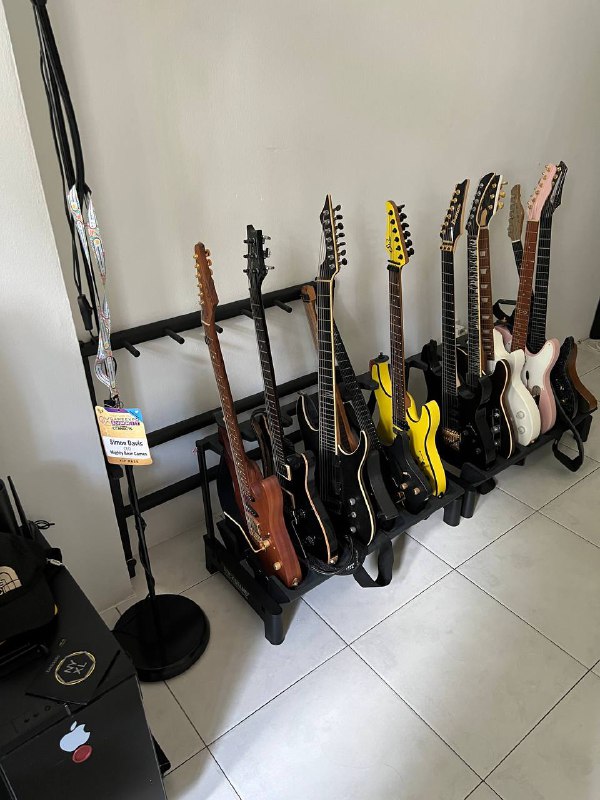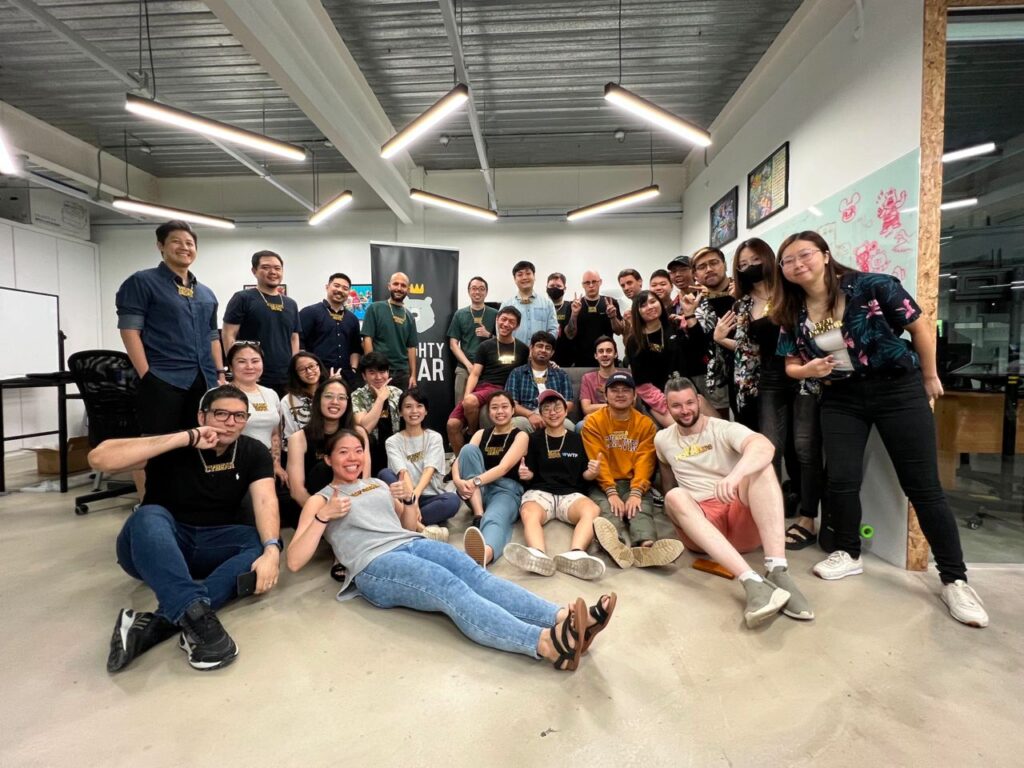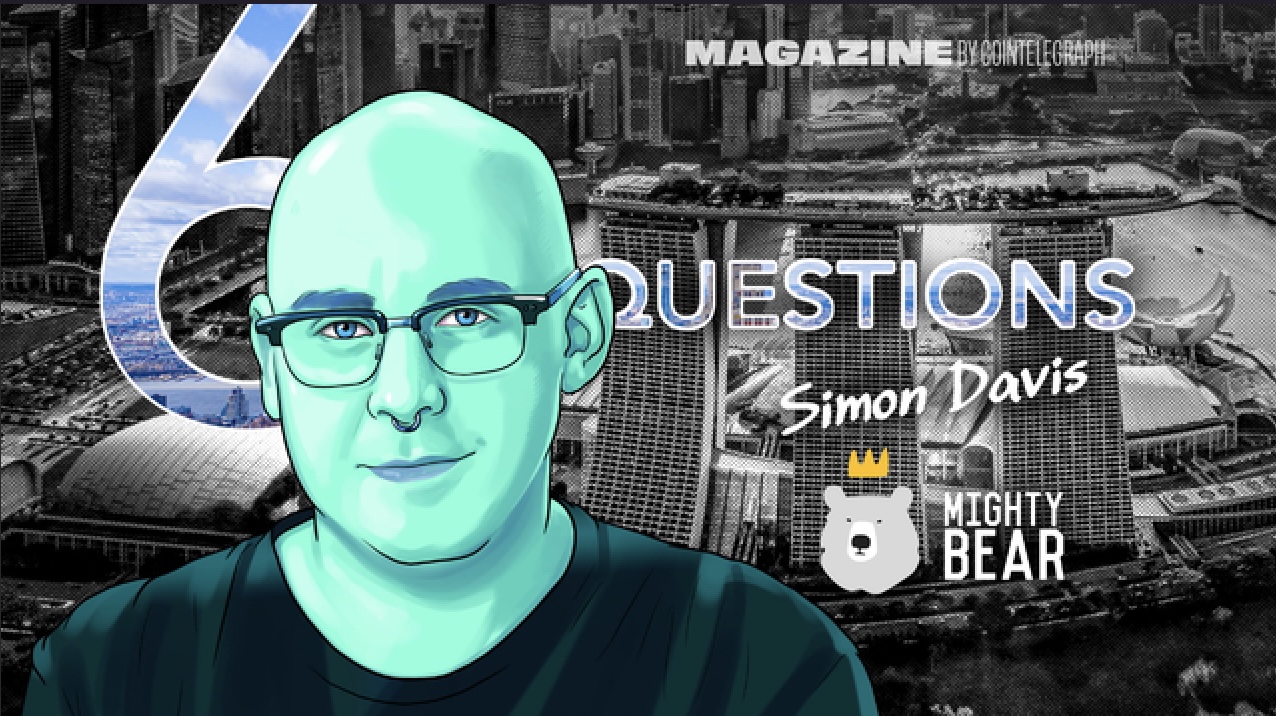Simon Davis is the co-founder and CEO of Mighty Bear Games, a multiplatform game developer in Southeast Asia creating accessible multipl
Simon Davis is the co-founder and CEO of Mighty Bear Games, a multiplatform game developer in Southeast Asia creating accessible multiplayer experiences in Web3.
Davis has spent almost two decades working in the gaming industry, but he never planned to actually work in this field.
Before crypto, he was a professional guitarist who made ends meet by playing in metal bands and cover bands and by teaching guitar. But after his money dried up one summer, he scored a six-week gig as a professional game tester — and he’s never looked back.

During his time in the gaming industry, Davis has held management and product lead positions at gaming companies including King Digital Entertainment, Ubisoft, Bigpoint, AKQA, Empire Interactive, and Laughing Jackal.
In 2017, Davis teamed up with some friends and fellow industry veterans to launch Mighty Bear Games in Singapore, where they intended to focus on creating traditional games — before pivoting to blockchain in 2022. And in 2023, the firm launched an open beta for Mighty Action Heroes, its first Web3 gaming title.
Davis, who also goes by “Papa Bear,” said every Mighty Bear employee receives a “bear title.” Some of Papa Bear’s employees include “Arty Bear,” “Bear-Abel,” “Excel Bear,” and “Bear McNumbers.”
Why the pivot to blockchain gaming?
I was lucky enough to kind of get into Bitcoin by accident in 2015, so I’ve been in the space for a few years. In 2021, I started playing with NFTs, and I’m lucky enough to be also based in Southeast Asia, so I could see firsthand what was happening with Axie [Infinity]. I think, for me, as someone who lived through the transition to free-to-play, it felt very much like a moment, kind of like when Farmville came out on Facebook.
I think that for live service titles [games like Fortnite, League of Legends and Apex Legends], a dominant business model is going to emerge to revolve around player-owned and operated economies. Because I don’t believe you can have virtual worlds without digital property rights, essentially.
And I think that does enable a lot of new things that we’re really starting to scratch the surface on. So, I think that really was the pull factor.
What format do you think serves as the best way to attract users to blockchain gaming?

I think mobile gaming is going to be the dominant platform because of geography. You see this if you look at the charts for the countries that have a great slope of interest in crypto or Web3. They tend to be countries where existing payment rails are not super developed.
People are largely unbanked in places like Indonesia and Brazil. These markets are mobile-first. Like, people in the Philippines and India are not necessarily using high-end PCs.
So, you need to go where the users are. And this is a bit of a spicy take, but this is why I’m very bearish on people making super HD high-end Web3 games because it’s just not where the markets are today. So, you see a lot of these teams raising, like, mega bucks to make console-quality titles, but if no one can play them, then they aren’t going to do very much.
What do you think the current hurdles are for large-scale blockchain gaming adoption?
A lot of people talk about it in terms of silver bullets, right? Like, “Oh, we need one good game,” or like, “We need to solve the wallet problem.” I don’t think it’s any one of those things. I actually think it is just a lot of lead bullets, a lot of small things that need to happen.
What I’ve experienced today is still pretty terrible, and scary, like social recovery. And it’s starting to become a thing, but that needs to become a lot easier.
Read also
Features
Gen Z and the NFT: Redefining Ownership for Digital Natives
Features
What it’s actually like to use Bitcoin in El Salvador
I just think, in general, it needs to be as easy and as brainless to use as a Web2 experience. And so I think there is an inherent conflict today with how people think about Web3, you know. They say things like, “Oh, you need to educate the users,” or, “Train people to hold their private keys.”
But you know, my mom doesn’t want to hold her own private keys. She does all her trading on Crypto.com. We need to make it essentially idiot-proof so anyone can do it.
I think we’re still quite a long way away, but I am seeing meaningful improvements, actually. I’m seeing products that are going to go to market next year which are going to help a lot.
I don’t know…
cointelegraph.com
